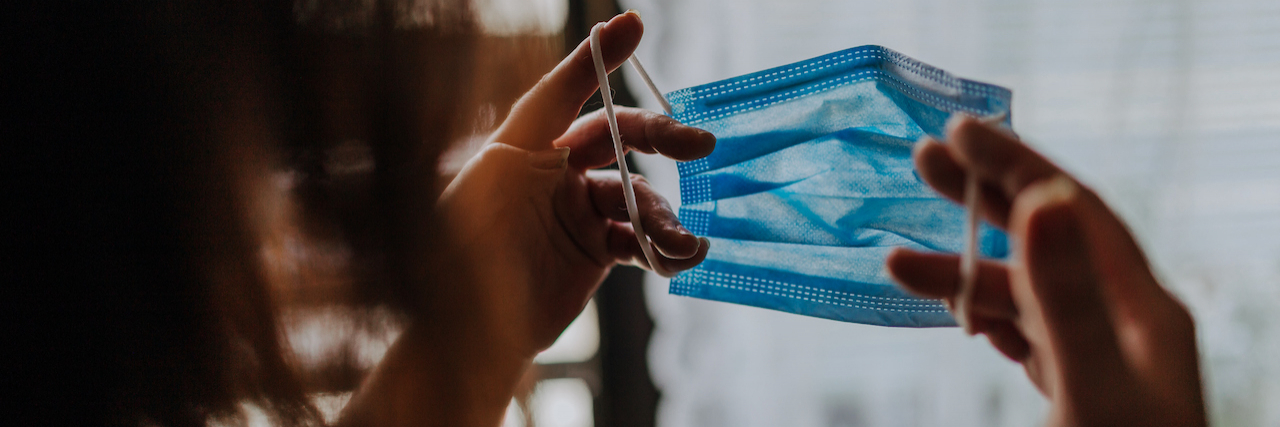Hi, Kristina here. I am your immunocompromised friend. Maybe we’re friends because we worked together at that summer internship, that agency or for that senator. Maybe we lived together in college or bonded over a journalism project one weekend at the University of Oregon. Maybe we sang in the same choir, attended the same church or met through Young Life in high school. Maybe we grew up together in Salem.
If you are unvaccinated but can get vaccinated, I ask you to reconsider getting the COVID-19 vaccine because you know me. I am a vulnerable person. I have medically vulnerable people in my family.
I understand there are a lot of fears and concerns about vaccines and whether they are safe. What I’d like to speak to specifically is everyone’s moral responsibility to take the vaccine, not only for themselves, but for those who are most vulnerable in their communities.
Before I got sick I was blissfully unaware of the suffering all around me. And friends, let me assure you, it is everywhere. Most of us don’t see it because we don’t know how to see it or because people who are struggling, people who are vulnerable, are often confined to their homes.
When I stepped into this season of illness, I initially felt too overwhelmed to notice anyone around me. A couple years in, I managed to get my head above water enough to begin to see the people around me.
The first time this happened was when I was receiving regular IV infusions for my migraines. Infusions were administered at the hospital, in the same department where cancer patients receive their chemo treatments, also through IV infusion. I’d often arrive with a migraine and curl up in a corner trying not to throw up in the waiting room, self-conscious of anyone looking at me. When I did look up, I saw the people around me. This was the first place where I learned that illness doesn’t discriminate. There were people of every race, age, gender, and income level. Children. Grandparents. Young professionals still in their work wear on their lunch break for a treatment. On their faces I saw their fear. Some here for their first dose, others navigating the uncertainty of the time they had left.
When the parents and I went to The Mayo Clinic in 2014 to try and find a diagnosis for my neck pain, I spent countless hours in waiting rooms for my many appointments. I saw children cradled by their parents. A young man wheeled in by his young bride. A teenager sitting in a wheelchair with their parents. The fear and desperation were palpable.
Once you realize something in your everyday reality is there, you can’t go back. Now wherever I go, I see them. I am them. They’re walking through the crosswalk with a limp. Their eyes are puffy from having just cried in the car. They’re waiting for their prescription at the pharmacy and use one of the offered chairs because they’re too weak to stand. Here in the U.S., 133 million people live with a chronic illness. That’s about 45 percent of our population.
For anyone who feels they are young and healthy, so therefore the COVID-19 vaccine is not a priority, I ask this: What is society’s responsibility to those in our communities who are sick and vulnerable?
The pandemic made everyone’s lives come to a grinding halt. For most people this was short-lived. Because I’ve lived with chronic illness for 10 years now and I’ve subsequently been home more than the average person, my doctor made it clear that I have a compromised immune system and I should not leave the house, apart from a daily, masked walk.
After I got the vaccine, a lot of my life opened up. I got to have vaccinated people back inside my house. I got to visit them in their houses. We got to share meals together. We got to hug. I got a pedicure. I got a haircut. It was the big and little things that made me feel more alive. I was able to emerge from my seclusion. I felt hope.
Then fall hit and the consequences of the unvaccinated shut down my life. My counselor described it like putting on a wet bathing suit. I watched vulnerable loved ones have urgent surgeries delayed by months. I’m still ordering everything I can online. I do curbside pick-up at Target. I sanitize my groceries and anything that comes into my house. I haven’t eaten inside a restaurant since March 2020. I haven’t been on a plane or attended a party. I am still living in about 90 percent of what most people remember as the initial mandated lockdown.
It’s been nothing short of heartbreaking to see the case numbers spike in Oregon over the last several months as our hospitals are flooded with unvaccinated people.
If you are unvaccinated by choice, your choice is making vulnerable people more vulnerable. If you are a Christian like me, friends, our job is clear: We are called to give away our lives in selfless, sacrificial service to those around us. Getting the vaccine is the simplest possible thing you can do to love your neighbor.
If you think you don’t know anyone affected by your decision, please remember me. You know me. From my homebound seclusion, I ask you to reconsider.
Getty image by sestovic

